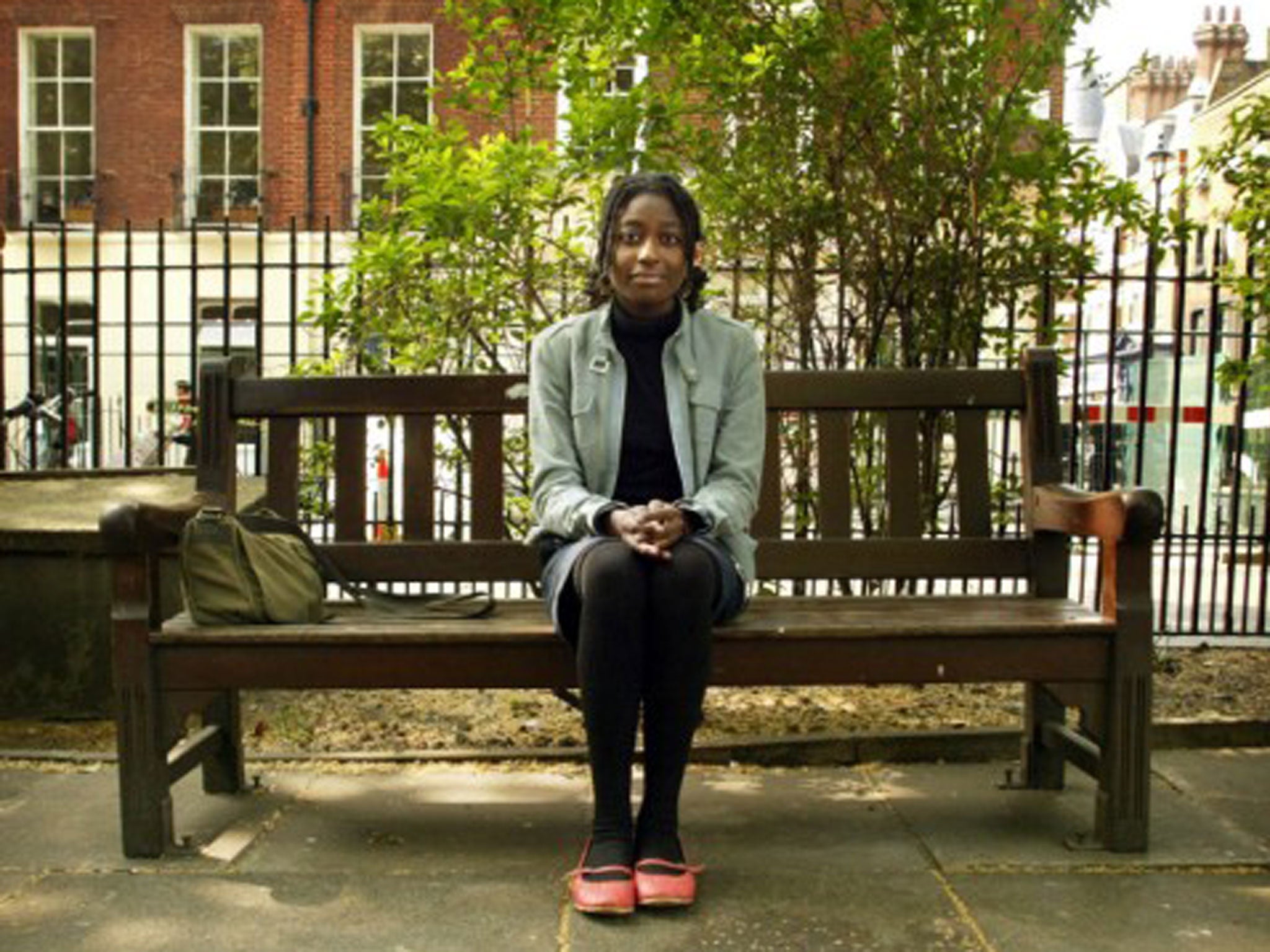Helen Oyeyemi, a postmodern literary wizard
With a fifth novel just out, Helen Oyeyemi is flying high, despite refusing to conform to expectations

Helen Oyeyemi thinks that reading Stendhal "goes really well with a background of R&B music". Boyz II Men, to be precise, crooning "4 Seasons of Loneliness" as she reads Love. This isn't the only thing you should know about Oyeyemi, the 29-year-old Anglo-Nigerian novelist who is among the youngest members of Granta magazine's decennial "Best of Young British Novelists" list. But it's a telling revelation: can you imagine Jonathan Franzen admitting he listens to Weezer while poring over Schopenhauer? Yeah, neither can I.
Oyeyemi has also "dragon-balled". The woman who has been compared to Edgar Allan Poe enjoys the Japanese schoolgirl practice of staging photographs from the anime series Dragon Ball Z, in which one person appears to have hit several others with a fireball. I am not saying Oyeyemi is inordinately involved in dragon-balling to the detriment of her craft. Not at all. I am just saying that Helen Oyeyemi is very much alive.
Now you know pretty much everything there is to know about one of the most promising young novelists working in the English language today.
OK, I know that you know that I am being flippant and that the young woman who grew up in a working-class section of London and scored a rumoured advance of more than £300,000 for her first novel, The Icarus Girl, while still at school studying for her A levels (she would go on to Cambridge) is more than the sum of her idiosyncrasies. It's just that Oyeyemi offers a much-needed contrapositive to all those pedigreed purveyors of literary fiction, which is what we call books that are predictably sophisticated and have absolutely nothing new to say.
Oyeyemi has just published her fifth novel, Boy, Snow, Bird, a retelling of the Snow White story set in mid-century America. As in previous works, Oyeyemi injects her bountiful imagination into an old tale, in what is more an act of revitalisation than reimagination. The Washington Post critic Ron Charles praises the "bewitching" novel, noting that "Oyeyemi captures that unresolvable strangeness in the original fairy tales" while also dealing with race.
Race may be one of the themes in Oyeyemi's latest novel, but she refuses to be occupied by questions of identity. Raised in London, she decided to leave the city after an amorous aggressor advanced on her as she was reading Norman Mailer's The Executioner's Song in Green Park. "Then the man asked if he could lay his head down on my lap. I said no. He laid his head on my lap anyway," Oyeyemi wrote, back in 2011 in The Guardian. She moved from city to city before settling on Prague, where she happily lives today, not quite an expat, not quite an exile. Just someone who knows there is more to the literary world than London and New York.
Much has been made recently of the rise of the "Afropolitan", a term introduced in 2005 by the novelist Taiye Selasi in an essay titled Bye-Bye Barbar. She described the Afropolitans as "the newest generation of African emigrants... You'll know us by our funny blend of London fashion, New York jargon, African ethics, and academic successes." In literature, the Afropolitan trend encompasses youthful talents such as NoViolet Bulawayo and Teju Cole.
Not Oyeyemi, who rejects the notion as soon as I introduce it. "That has nothing to do with me," she says. "I hate to talk about countries; it really doesn't matter to me." Some may want Oyeyemi to engage more fully in racial thinking, to mine the experience of the African diaspora as explicitly, and forcefully, as Toni Morrison has (and, for that matter, as have novelists such as Saul Bellow and Jhumpa Lahiri with their own ethnic diasporas). But asking "ethnic" writers to hew to ethnic themes turns their novels into battle flags of identity politics instead of genuine works of art. Oyeyemi has not ignored race, but she is not obsessed with it.
If Oyeyemi does belong to any nation, it is that of postmodern wizards such as Haruki Murakami, the ones who toy with everything literary and take nothing for granted. What she calls her "desire to disrupt stories" has led Oyeyemi to reimagine the standard coming-of-age novel via Nigerian myth (The Icarus Girl), flirt with ghosts (White Is for Witching) and douse the Bluebeard myth in rich heapings of metafiction (Mr Fox).
Mr Fox was the novel that made Oyeyemi more than just a publishing-world darling. Ambitious and complex, it is a work that suggested an intellect willing to stray far beyond the usual bounds of the 20-something's domain. "I had so much fun writing that book," Oyeyemi says, "it was almost as if I didn't understand that people were going to read it."
Not all that long ago, convention could have been her fate. In 2007, she enrolled in a creative writing graduate programme at Columbia University, which would have likely led to a pat novel about the Anglo-Nigerian experience, perhaps a premature memoir of the sort pumped out by so many writers with nothing but their own slightly-deviated-from-the-average stories. But she found New York a "confrontational city" that distracted her from writing. And the workshop model of teaching proved "stressful".
After one semester, Oyeyemi left New York and, with it, the confines of its literary culture. Now, she is in Prague. Tomorrow, she may be in Lima. Some novelists spend an entire career mining a single place (Philip Roth/Newark) or a single idea (Cormac McCarthy/alienation). Not Helen Oyeyemi. She has to get going.
© 2014 IBTimes
Join our commenting forum
Join thought-provoking conversations, follow other Independent readers and see their replies
Comments
Bookmark popover
Removed from bookmarks